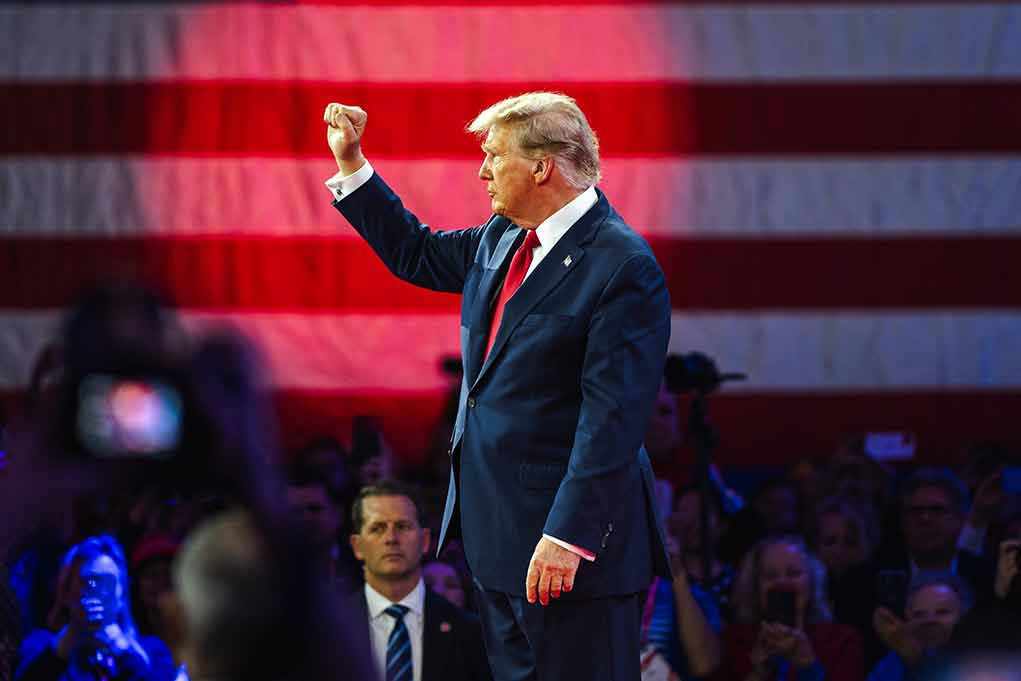
A Democratic senator’s public praise for Donald Trump’s Gaza peace plan has upended the rules of partisan politics, exposing deep rifts not just between parties, but within them—and raising the question: when did seeking peace become so controversial?
Story Snapshot
- Senator John Fetterman, a Democrat, openly endorses Trump’s 20-point Gaza peace plan.
- Fetterman criticizes ‘pro-Palestine’ protesters for refusing to support the plan or pressure Hamas.
- This bipartisan moment highlights growing divisions within the Democratic Party over Israel and Gaza.
- The peace plan’s fate and its political fallout remain uncertain as negotiations continue.
Fetterman Defies Party Lines with Trump Endorsement
Senator John Fetterman’s decision to publicly support Donald Trump’s Gaza peace proposal is not merely a headline—it’s a cannonball in the stagnant waters of Washington’s Middle East policy debate. Fetterman used his X account to urge Hamas to accept Trump’s 20-point plan, emphasizing the immediate need for peace and the release of Israeli hostages. By October 6, the media had seized on the rare sight: a Democrat, unapologetically pro-Israel, giving credit to a Republican rival’s foreign policy blueprint.
Fetterman’s stance is not a sudden change of heart. As a vocal Israel supporter, he’s frequently clashed with progressive elements in his party, but praising Trump’s plan—and lambasting pro-Palestine protesters for failing to demand Hamas’s compliance—was a new level of public defiance. “Hamas must choose peace or its own destruction,” Fetterman declared, calling for hostages’ release and crediting Trump’s plan for progress. His message was clear: political loyalties come second to the search for peace and security for both Israelis and Palestinians.
Gaza’s Conflict and America’s Political Fault Lines
The Gaza conflict has long been a lightning rod for American political divisions, but the current round—set off by war in 2023 and marked by failed ceasefires and mounting civilian casualties—has become a mirror for the nation’s own ideological schisms. Progressive activists, particularly on college campuses, have become a fixture in headlines, demanding an end to U.S. military support for Israel and a ceasefire. Fetterman’s critique of these protests is both tactical and symbolic: while activists pressure Washington, Fetterman insists their energy is misdirected if it doesn’t include calls for Hamas to accept viable peace terms.
Fetterman Praises Trump's Gaza Peace Plan, Slams 'Pro-Palestine' Protesters for Not Doing the Same https://t.co/3SsQzkQh2i
— Norman Firebaugh (@FirebaughNorman) October 7, 2025
Trump’s latest foray into Middle East diplomacy, meanwhile, is both a continuation of his Abraham Accords legacy and a political maneuver to reclaim relevance on the world stage. Yet, his plan’s reception is anything but predictable. Skepticism abounds, especially regarding Hamas’s willingness to negotiate with an American plan so closely associated with Trump himself. The very notion of Trump and Fetterman aligning, even briefly, illustrates how the search for peace can scramble the usual partisan calculus.
Negotiations, Protests, and the Stakes of Bipartisan Praise
As of October 7, negotiations reportedly continue, with technical teams meeting in Egypt. Trump has claimed “very positive discussions” with Hamas and international actors to secure both a ceasefire and the release of hostages, but no final agreement has been reached. The political dynamic, though, may be shifting more rapidly than the diplomatic one. Fetterman’s public criticism of progressive protesters—combined with his endorsement of Trump’s plan—spotlights a growing chasm within the Democratic Party, where support for Israel is no longer a reliable consensus.
The stakes extend well beyond Capitol Hill. For families of Israeli hostages and Palestinian civilians trapped in Gaza, the outcome of these negotiations is a matter of life and death. For activists and political strategists, the episode raises uncomfortable questions: can a peace plan succeed if its origin polarizes the very audiences needed to support it? And what happens to a party’s base when a leader defies its loudest voices on a defining foreign policy issue?
Shifting Ground: Political, Social, and Diplomatic Implications
The Trump plan—if accepted—could deliver a desperately needed ceasefire and hostages’ return. Long-term, the episode may reshape American political discourse on the Middle East, as bipartisan support for a peace initiative tests party loyalties and exposes ideological rifts. Democratic strategists now face a dilemma: does applauding a rival’s plan for peace alienate the base, or offer a path toward pragmatic solutions in a climate of gridlock?
Foreign policy experts remain cautious, noting the deep mistrust between negotiating parties and the history of failed U.S. interventions. Yet, Fetterman’s willingness to cross party lines could signal a growing appetite for results over rhetoric. The true test will come not in the next news cycle, but in whether the current moment leads to peace—or simply another round of political blame games and ideological purity tests.
Sources:
Townhall reporting on Fetterman’s statements and Trump’s peace plan
Official statements and social media posts from Senator John Fetterman

